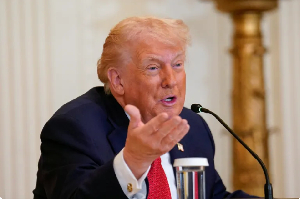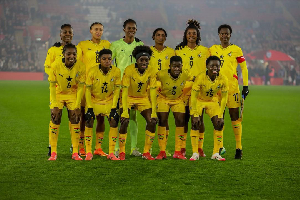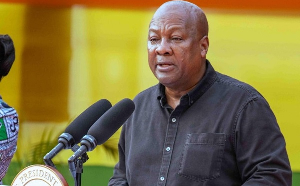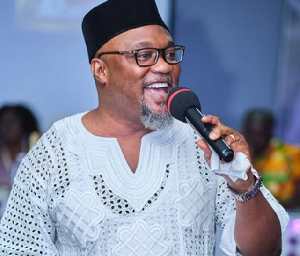Researchers have identified a child’s first three years as critical for the development of language attention span, social skills, and problem-solving capabilities.
? Yes, given the importance of quality early childhood care, well-designed early childhood centre are lacking in Ghana.
? Day care centre serving low-income children in the rural areas are so poorly run that they impede children’s health and safety. Human right issue!
? Comparing the ideal classroom size in the United States, which is 42-50 square feet per child with the being minimum of 35 square feet per child highlights the quality our children are getting! It is worth evaluating the quality our children would get in their current given roofless classrooms or day care centres. I have not measured day care centre facilities but could we equate the square feet allowance for a child in our villages day care centre to the above? Whose responsibility is it therefore to see that every day care centre classrooms all across Ghana is fully roofed with basic security for our children. It least meeting our children needs half way would be acceptable by UNICEF and other related organisations.
? State Day Care Centres or nursery in Ghana, does lack a more pragmatic flexibility classrooms to allow flexibility for children to play and engage in a creative play.
? It is important, as the theorists say, for classroom to have a high degree of spatial differentiation as activity areas. This may needs separated by physical objects such as movable partitions or a screen. This distinction and well-defined boundaries does support social interaction, encourages exploratory behaviour, and prevent interruption of ongoing play.
? Basically, the above demonstrates the need for classrooms to have at four distinct activity zones.
? Gross-motor skill zone—This offer pre-school children to space to dance, climb, jump, and move things. This space need to allow for push and pull toys
? Dramatic play Zone- - Make believe and pretend play is important for pre school children. Providing home centre props, such as kitchen, living room furniture, and Theatre area. Such a space allows for gross motor movement between the two zones. This division facilitates the promotion of a sense of semiprivate space.
? Arts and crafts zone- This is the wet area of the room where pre-school children can experiment with sand, water, paint, paste, clay and other messy materials. The art and craft zone needs to be near a water source.
? Quiet zone—: Young children need personal space that permits intimate interaction with an adult and provides a space for solitary play, looking at books, or simply resting. This is an area that perhaps a mini library could be installed.
? Outdoor space-: An outdoor space should allow for both free and structural play. Such as seesaw, tyres for pull along games, bike, and playground equipment that other safety equipment to prevent major accidents and injuries. Currently most of such rural day care centres have practically no playing equipment’s to talk of? Or is there any?
? Multipurpose room-: This would serve as a dinning room and could even be a open summer hut
? There should a mini health centre with and staff trained for first aid certificate.
? Teachers’ workspace-: This is area provides space for teacher preparation and relaxation. This is a space for a collaborative planning with perhaps TV & Video. Anyone Ghanaian who comes from a given village for example, but resides in Diaspora and is able to assist could perhaps donate a spare TV to such day care centre
? Administrative space-: This is for administrative purpose.
Why, the need for proper designing of Day care centre
? Children progress rapidly through physical, cognitive, and socio-emotional development. Some implications for design include providing a safe environment and space for day care workers to interact with the children.
? Discovery and Play-: The environment should permit growth and discovery. Our children need the space where they feel both autonomous and masterful. However does our State day care centre provide this vital space in to facilitate this development?
? Does every child matters in Ghana? Or Children are educated in a two tier system?
? The wealthy groups within our society have options and may send their children off to Montessori purposeful designed day care centres. However, the poor, vulnerable and disadvantage group have no option other than send their children the dilapidated, day care centres. Some centres have leaking roofs or no roofs or “ under the tree day care centre”. Is this all we could offer the children in our villages?
? This clearly dicpicts the inequalities the vulnerablechildren face within the Ghanaian society.
? Does children human rights and child protection policies apply to these children plighte? For example , in child protection policy there are four cateories of abuse. They are physical abuse, sexual abuse, emotional abuse and neglect.. I strongly believe that Ghana is neglecting its vulnerable group within our society. It appears these children are being denied the basic education they need for a solid foundation necessary to enable them to reach their full potential. Does the UNICEF cater the educational funds, and other educational major organisations include the needs of these vulnerable children in the package of proposals?
? Early learning centres have been view by educators, that it is a vital component in preparing children to come to school ready to learn, gain self belief, self-esteem and resulting to a confident, assertive children and ready to face the wick world out there.
? On the contrary, when one goes to our villages, one sees children looking very timid, shy, no confidence look in their eyes. One wonders what the future holds for them. Very bleak indeed.
? Could this be due to lack of creativity in our early years educational strategic planning?
? In an ideal world, our educational system may require to integrated basic skills such as playing with clay and encouraging pottery, doll making, painting, using of scissors for paper cutting, basic art and craft, textile cutting, children Theatre, beading making, sand, water and playing with mud. Also introducing the art of mosaic using just odd broken tiles would widen the cognitive skills of our children. The facts are all these materials are freely available in Ghana?
? Introducing jigsaw puzzles and card games at all day centres would help to offer creativity and early cognitive development of our children.
? Are these too much to ask for our socio-economically-disadvantaged children? I hope the Minister of education, could clearly spell out his strategic plans for day care centres to the general public and reassure parents in this specific category. As these group are unable to articulate what is best for their children? What is our problem?
? Which target group of children does the Government have in their strategic planning for our future workforce though? Could it be the vulnerable within our society?
? Does the Government assumed that all children go to top quality day care centres, which provides a desired facility? Perhaps!
? Where does each region’s MP send their children of nursery going age? One may ask?
? Is it in a dilapidated day care centre similar to those in our villages? One does not think so!
? Whose responsibility is it then, to ensure a proper provision for the very poor, vulnerable children of Ghana?
? Whose needs are put on the negotiating table when it comes to securing foreign loans for the educational developmental progress? The wealthy children perhaps?
? The quality of day care centres is becoming an important political, educational, and social concern globally. As research mount on the importance of the first years of life. It is therefore about time Ghana Government and the individual care day centres, to remember that early childhood day care centre is a crucial component of the quality of care offered to our children regardless their social-economic background.
? Such children are the backbone of Ghana’s future workforce and the key to our total freedom from that label “ poverty stricken country”
? I am pleading with the Ghana Government, NGO’s, the individuals nursery owners to rethink about the strategic planning of day care centres, with a mission to establish a solid foundation for the nation future workforce. As a nation, should not let these vulnerable, socio-economic deprived children down.
? How could we as nation boost of our achievements and acquired wealth and furthermore our academic achievements, when the vulnerable among us are helpless?
? Unless the needs of these groups of children are fully addressed, Ghana would be classified in the eyes of the developed world as a poor country needing more aids and loans to sustain it.
? We as a nation are responsible to offer this head start in life to our vulnerable infants within our society.
? The UNICEF, United Nations, Human rights regulations must all pull together and ensure that any Government in Africa to demonstrate that money meant of such development are used as planned. Also they need to observe whether the right structures are in place for an ongoing progress towards helping the vulnerable group. These groups have no voice in our society of me, myself and I.
? All chiefs, community leaders, churches Mosques and the individuals must endeavour to be the mouthpiece for our voiceless infants in the villages.
? All one needs to know is whether “ the poverty reduction money “does cover these areas of concerns as well.?
? In view of the above concerns, Ghana as a nation is rather focused on building a purposeful Presidential Palace to impress the outside world that all is well with Ghana.
? Hope everyone realises where our own priorities lies, whilst we are showing off to the world our backyards are full of dilapidated, unsafe and unacceptable classrooms for the vulnerable within our society, our future workforce.















